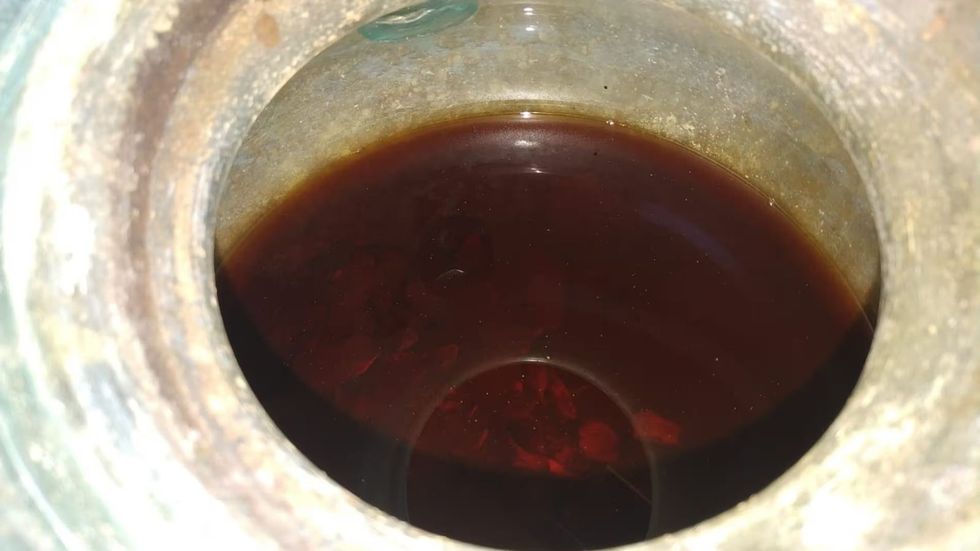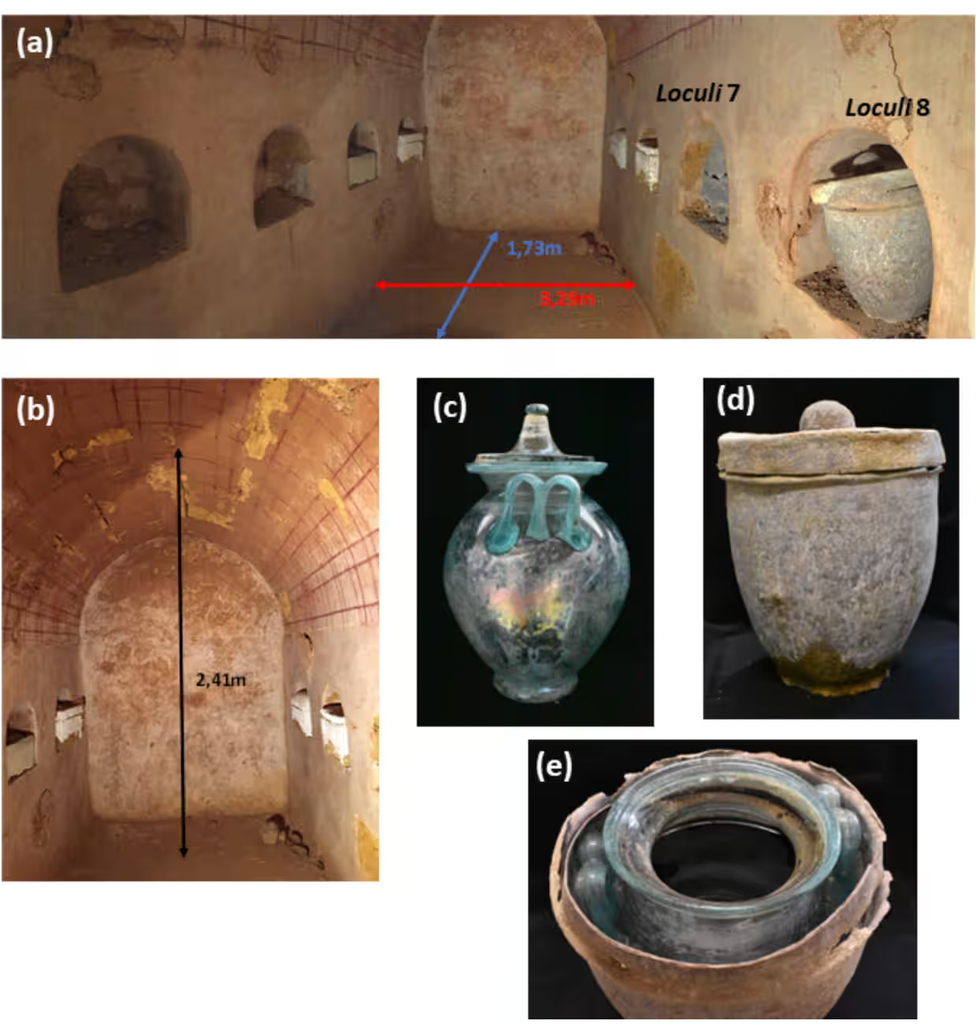The oldest wine in the world has been found inside a Roman tomb in a city in the southern Spanish region of Andalusia
Juan Manuel Román
The 2,000-years-old wine is in its original liquid form and a reddish-brown colour
Don't Miss
Most Read
Trending on GB News
The oldest wine in the world has been found inside a Roman tomb in a city in the southern Spanish region of Andalusia.
The 2,000-year-old white wine is in its original liquid form and a reddish-brown colour due to the chemical reactions that have taken place.
Experts at the University of Córdoba say the Roman tomb was accidentally discovered in the Andalucían town of Carmona five years ago.
But researchers only recently found the reddish liquid in the glass flask inside had not come from condensation or flooding.

Researchers believe the white wine was poured into a funeral urn along with other items, including the cremated bones of a Roman man
Juan Manuel Román
Tests showed that the liquid had a PH of 7.5 – similar to that of water – and contained chemical elements very similar to those in today’s wines.
Researchers believe the wine was poured into a funeral urn along with other items, including the cremated bones of a Roman man.
The liquid is thought to be a local, sherry-like wine.
The Spanish urn was discovered in 2019 after a family located the sunken tomb while having work done on their house in Carmona.
Previously, the oldest wine preserved in a liquid state was the Speyer wine bottle which dates back to around AD 325.
LATEST DEVELOPMENTS:
"It’s a sunken tomb that was excavated from the rock, which allowed it to remain standing for 2,000 years," José Rafael Ruiz Arrebola, an organic chemist at the University of Córdoba who led the analysis of the discovery, said.
"You’ve got to applaud the civic spirit of the house’s owners who called the town’s archaeological department straight away.
"The town archaeologists quickly realised that the tomb was incredibly unusual because it hadn’t been raided or looted – Romans were proud, even in death, and used to build funeral monuments, such as towers, over their tombs so people could see them.
"They wanted to remain in people’s memories."
 The urn found in the Roman tomb was preserved in excellent conditionJuan Manuel Román
The urn found in the Roman tomb was preserved in excellent conditionJuan Manuel RománEight burial niches were located in the tomb which featured six urns containing the cremated bone remains from a single individual and two of the urns were inscribed with the names of the dead: Hispanae and Senicio.
Last year, researchers found that one of the urns held a 2,000-year-old patchouli-scented Roman perfume.
Ruiz Arrebola said: "It’s been spectacular for us because we’re all passionate about the world of archaeological chemistry.
“And anyway, it’s not every day that the oldest wine in the world turns up."








